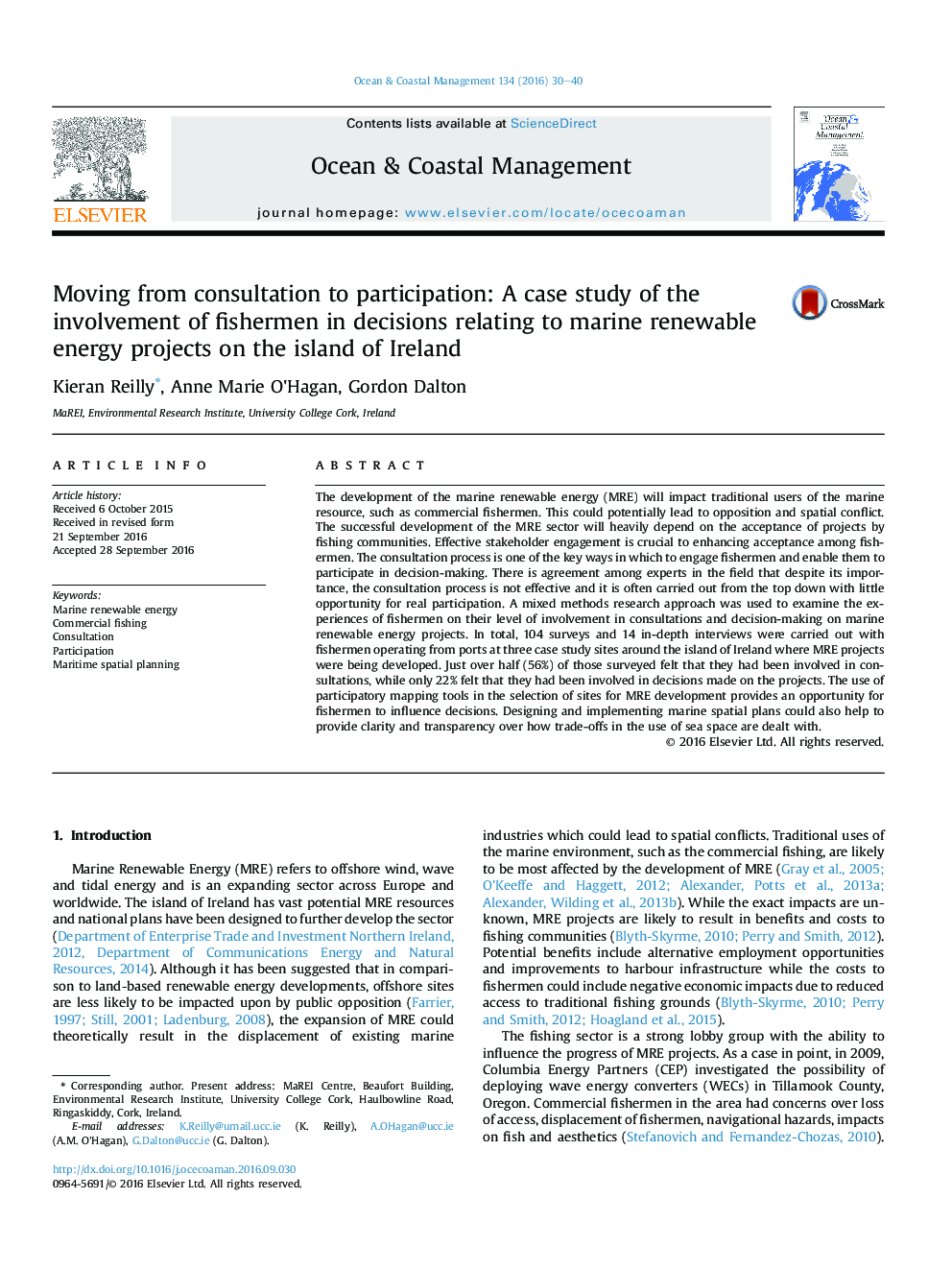| Article ID | Journal | Published Year | Pages | File Type |
|---|---|---|---|---|
| 5473915 | Ocean & Coastal Management | 2016 | 11 Pages |
Abstract
The development of the marine renewable energy (MRE) will impact traditional users of the marine resource, such as commercial fishermen. This could potentially lead to opposition and spatial conflict. The successful development of the MRE sector will heavily depend on the acceptance of projects by fishing communities. Effective stakeholder engagement is crucial to enhancing acceptance among fishermen. The consultation process is one of the key ways in which to engage fishermen and enable them to participate in decision-making. There is agreement among experts in the field that despite its importance, the consultation process is not effective and it is often carried out from the top down with little opportunity for real participation. A mixed methods research approach was used to examine the experiences of fishermen on their level of involvement in consultations and decision-making on marine renewable energy projects. In total, 104 surveys and 14 in-depth interviews were carried out with fishermen operating from ports at three case study sites around the island of Ireland where MRE projects were being developed. Just over half (56%) of those surveyed felt that they had been involved in consultations, while only 22% felt that they had been involved in decisions made on the projects. The use of participatory mapping tools in the selection of sites for MRE development provides an opportunity for fishermen to influence decisions. Designing and implementing marine spatial plans could also help to provide clarity and transparency over how trade-offs in the use of sea space are dealt with.
Keywords
Related Topics
Physical Sciences and Engineering
Earth and Planetary Sciences
Oceanography
Authors
Kieran Reilly, Anne Marie O'Hagan, Gordon Dalton,
